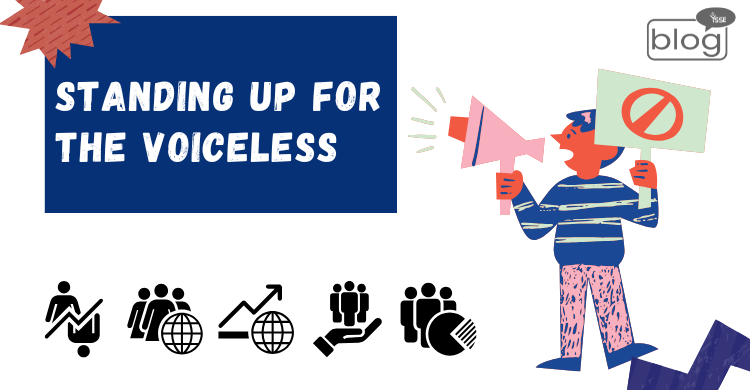10 December is the day when the whole world celebrates Human Rights Day and commemorates the Universal Declaration of Human Rights, adopted in 1948. It’s a call to people from all walks of life to unite in support of the oppressed. Being the voice of these marginalized people is not just an act of kindness; rather, as a part of society, it is our duty to ensure equity for the voiceless.
Getting Educated About The Rights
First, one needs to educate themselves about the oppression and discrimination people have to face in different parts of the world. We need to know the legal policies and frameworks regarding the rights of deprived communities. We can also follow organizations like Amnesty International or Human Rights Watch. These organizations provide accurate information about the challenges marginalized communities are facing.
Uplifting Marginalized Communities
We should uplift the stories of people being deprived of their rights. We need to raise our voices to make them heard by the world. They often face challenges in reaching the mainstream world where people can understand and advocate for their situation. We can use our community platforms to spread awareness about the discrimination they are facing. There are also local communities working for these people; we need to highlight their work to the outside world and support them.
Reforming The Policies
We can advocate for policy changes by writing and putting our opinions in front of the policymakers. We can arrange campaigns to bring reformation in sectors like education, healthcare access, and protection to vulnerable communities. Changes in policies are necessary for the long-lasting progress of the marginalized community.
Volunteering with Time and Resources
As it is well known, “Actions speak louder than words.” Volunteering and monetary donations are more effective ways to support human rights organizations. Apart from just talking about the issues and highlighting them, we can use our skills for different organizations. We can make a solid base for the movements by utilizing our skills in legal aid, education, or community organization. We can also contribute to NGOs and charitable foundations working for the marginalized population.
Practicing Empathy and Inclusivity
Empathy and inclusiveness need to be practiced by us as an ally to the deprived. This is everyone’s right as a human being, and they should be treated respectfully with dignity. The best way to value feeling is to listen to the experiences or stories of deprived communities without judgment. Reflecting on our assumptions about discrimination and calling out the inequalities is one of our prime duties.
Participating on Events
Participation in events like webinars, rallies, or panel discussions can be a good way to observe Human Rights Day and put your concerns in front of the communities. This participation shows our commitment to society. We can spread awareness in our communities by sharing the insights from these programs.
Keeping the Practicing Momentum Going
When we are being an ally to the marginalized voice, we need to be committed to our actions. We should be updated about the deprivations the marginalized voices are facing. We need to advocate for the discriminated population year-round. We can also collaborate with different organizations to create long-term initiatives.
Allies bridge the gap between marginalized people and policymakers. The marginalized communities are often deprived of the resources and platforms they need to make their voice heard. Our small actions can bring equity, justice, and dignity to marginalized communities. Together we can make a better world where everyone is equally respected and held to equal rights.
To read these types of blogs, click here.
Writer
Zabin Tasmin
Intern, Content Writing Department
YSSE

